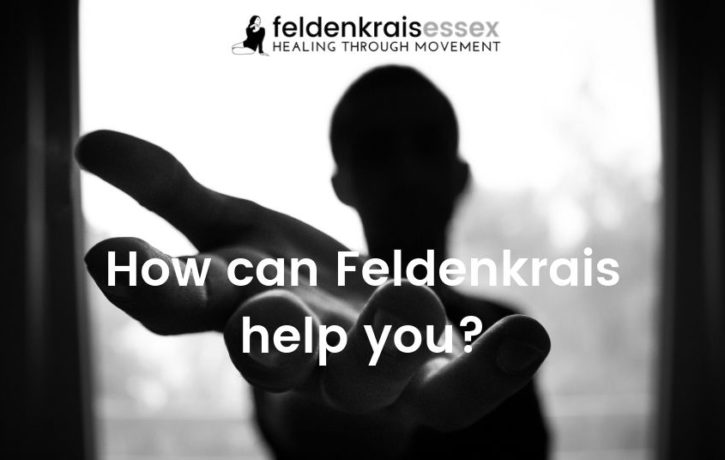in Mindfulness
How Can Feldenkrais Help You?

Do you suffer from:
- Chronic back problems
- Repetitive strain injury (RSI)
- Tension and stress
- Anxiety and depression
- Neurological conditions
Or perhaps you would like to improve your current skills in sports, music, dance or drama?
What is Feldenkrais?
In my previous blog, I mentioned that the Feldenkrais Method uses mindful movement to retrain the brain. Before I go on to explain how it works, here is a brief history of its origins.
Who was Dr Moshe Feldenkrais?
The Feldenkrais Method was named after its founder, Dr Moshe Feldenkrais, who was a scientist, engineer and martial artist. He combined his work in these disciplines with his interest in neurophysiology, psychology, philosophy, child development and neuroplasticity to come up with a comprehensive package of a mind/body system of thinking and moving.
He really wanted to help people to empower themselves through this extensive knowledge and application. He was reluctant for his work to be called the Feldenkrais Method as it didn’t really tell people what it was about. Some of his students have since then developed or taken aspects of his work and given it other names, the more well-known examples being Thomas Hanna’s ‘Somatics’, Anat Baniel’s ‘NeuroMovement’ and Ruthy Alon’s ‘Bones for Life’.
How can it help you?
Dr Feldenkrais was far ahead of his time in this thinking in that he realised that we are bio-psycho-social beings. To put it simply, bio means our biology and structure, psycho is our consciousness and social would be our surrounding environment. To deal with a person’s issue, whatever it is, we have to look at the entirety of the package to obtain long-lasting results.
Hence, addressing a chronic neck or hip pain at the site of the issue, without taking into consideration how you are moving and using yourself in daily life, is like sticking a plaster on a ceiling that has a little hole and is leaking. Wouldn’t it be more sensible to find out what is causing the leak and try to resolve the issue that way?
Stress and anxiety cause certain physiological responses such as the tightening of certain groups of muscles and the shortening of breath. If we can alter our physiology through a series of mindful movements, we can also look to reducing our stress and anxiety.
Similarly, when looking to improve an action, whether it be running, dancing or playing an instrument, when we are connected to all our parts, both physically and mentally, we can do those movements much more easily and efficiently.
How can it be experienced?
The work takes on two forms, one in a class situation and the other in individual sessions. You can see the two practical applications of the method in these videos.
Here is an example of what happens during an Awareness through Movement group class:
Below is a video of 3 Functional Integration individual lessons:
Coming up soon in Westcliff on Sea – Free Presentation and Book Launch!
Feldenkrais is coming your way! There will be a presentation about the work, and seven books about the method and neuroplasticity which will soon be available at Southend Library will be available to browse through. There will be an opportunity to experience a free group lesson and a chance to talk to some health workers who will be speaking about their life-changing experiences from the work.
Date and time: Saturday 20th July 2019 / 10am-12pm
Venue: Anke’s, 481 London Road, Westcliff on Sea, SS0 9EZ
Entrance is free but please support the cafe by purchasing a drink and/or cake at the reception. Spaces are limited and are allocated on a first come first serve basis. This is a great chance to check out Anke’s new premises if you haven’t been there already.
Discount vouchers for treatments and classes will also be available at the event.
For further information on the Feldenkrais Method contact Yeu-Meng Chan at The Body Matters on 01702 714968.
- How Can Feldenkrais Help You? - 8th July 2019
- What is Feldenkrais? - 11th June 2019
